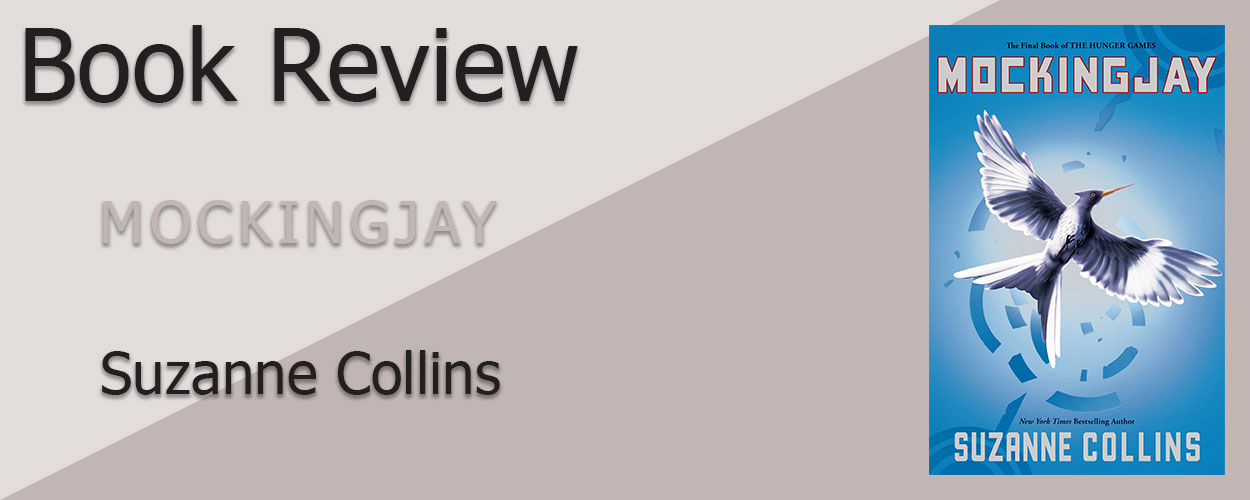

I liked it, but it wasn’t for me
This is the final book in The Hunger Games series (aside from the prequel book). I was hoping for a strong ending to the trilogy, but unfortunately it didn’t live up to the first book, or even the second.
Read: December 19 – December 28, 2022
Audience: Young Adult
Book contains: death, violence, manipulation, totalitarianism, poverty, uprising/revolution, war
Purchase a copy from Amazon.ca
After being rescued from the Quarter Quell alongside Finnick and Beetee, Katniss is struggling to assimilate to the strict rules of District 13 as she deals with the destruction of her home and the capture of Peeta by the Capitol.
My first complaint about this book is the sheer amount of worldbuilding given despite it being the third book in the series. Typically, you want to be able to jump right into a sequel/subsequent book and know what’s going on, but because it’s set in the mysterious District 13, who no one even believed was real until now, the reader needs a lot more information about how things work and new characters and everything. Since the book picks up a few weeks since her rescue, Katniss already knows most things and a lot of the worldbuilding is review for her but new for the reader.
Furthermore, unlike the first book, which was just about the Games set in a dystopian world, and the second, which was first about the fallout of winning and then a second Games, the third book is about the ensuing rebellion and the battle between the rebels and the Capitol. Unlike the first book, this one can’t be categorized as Dystopia, which I was expecting from this series (because the good guys win in the end).
Again, the book is written in the present tense from Katniss’s perspective, and because of her strained mental health, we spend a lot of time in her head in the first few chapters, then moderately throughout. There are scenes where she isn’t lucid at all, and we are thrown into confusion about what’s going on, which is cool, and I liked the contrast between those scenes and the ones where everything around Katniss is clear. The use of an unreliable narrator was well done, though unlike the other books, where I felt that no scene was wasted, there was a lot of worldbuilding that felt like it droned on and on in this one. I would’ve felt completely fine with being thrown directly into this world and not knowing what was going on, specifically because it’s the third book, but I understand that many people don’t mind heavy worldbuilding.
I was also slightly disappointed that my theory about District 13 was proven incorrect. This doesn’t affect how much I like this book, but I thought it worth mentioning. District 13 is simply a District that exists underground, hidden since they removed themselves from the war seventy-five years prior. I’d initially thought that there would be a big reveal that the Capitol was in fact District 13, and the war-torn footage was simply propaganda used to keep everyone in line. This was not the case, and District 13 was just hiding the whole time, preparing for someone like Katniss to incite a rebellion.
The cast changed around quite a bit, with many new characters coming in because of the new setting, but also a few characters returning: Katniss, her mother, Prim, Gale, Haymitch, and Finnick. Peeta, having been captured by the Capitol, isn’t seen much until later on in the story. The characters remained consistent, and I think the clashing of their personalities was realistic and entertaining. I hate it when everyone gets along perfectly, even when they’re all working toward a common goal. Everyone always has their own agenda, and it’s rare for anyone to do the right thing simply because it’s right. “We can’t all be Captain America,” right? Katniss’s goals are different from Gale’s goals, which are different from Plutarch’s goals, which are different from President Coin’s goals.
It took me a little over a week to read this book, because I read an hour in the morning and dedicated time twice a day to read. As I said, I didn’t enjoy this book as much as the second, which in turn wasn’t as good as the first. I suppose that’s just because I’ve read good vs. evil books before, and I would’ve preferred this story to be different, to be the dystopia I was expecting. As such, I think the first book could easily stand on its own (if not for Peeta figuring out at the end about the act and being upset about it; that was a cliffhanger for book 2).
The next book I’m going to read is the prequel novel about President Snow, called The Ballad of Songbirds and Snakes. It’s the longest book so far, being over 500 pages, rather than around 300.
Though I didn’t enjoy this book as much as the first or second, I still recommend it to people who want the series to be wrapped up. All loose threads were nicely tied.
The Hunger Games Book 1: The Hunger Games by Suzanne Collins
The Hunger Games Book 2: Catching Fire by Suzanne Collins
The Hunger Games Book 3: Mockingjay by Suzanne Collins
The Hunger Games Prequel: The Ballad of Songbirds and Snakes by Suzanne Collins
The Hunger Games Prequel: Sunrise on the Reaping by Suzanne Collins
Divergent Book 1: Divergent by Veronica Roth
The Maze Runner Book 1: The Maze Runner by James Dashner
Tigerpetal Press is a small book press dedicated to publishing local authors and poets.